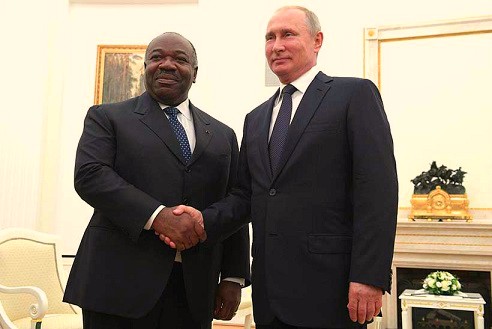
[ad_1]

In recent years, Russia's economic cooperation with African countries has developed quite dynamically, but in the context of the West and China, the quantitative indicators seem rather modest.
Meanwhile, the potential for trade, economic relations and investment projects is very high. The task of state enterprises is to create the necessary, informational political, legal and economic conditions for more active interaction of Russian companies with African partners.
Russia's trade with African countries has had a positive evolution in the last two years. The total business figure in 2016 was $ 14.5 billion, or $ 3.4 billion more than in 2015.
The lion's share, $ 10.1 billion, concerns four countries: Egypt ($ 4.16 billion), Algeria ($ 3.98 billion), Morocco (1.29 billion billion) and South Africa, 718 million. At the same time, the main contribution to growth was achieved, thanks to Algeria, to the commercial turnover which increased by 2 billion dollars.
A positive momentum was recorded in trade with 28 out of 55 African countries. The largest percentage indicators of trade increased with Ethiopia, Cameroon, Angola, Sudan and Zimbabwe.
According to the Eurasian Economic Commission, Africa is the only region in the context of the EU, MERCOSUR, APEC, etc., with which Russia increased its trade in 2016.
Obviously, the possibilities for cooperation are not yet exhausted. At the same time, the economic penetration of the "black continent" vis-à-vis major Western and Chinese countries with Russia is very low. In 2015, US trade with Africa was $ 100 billion, compared with $ 300 for China.
Traditionally, Russia's strong position in Africa in the arms market has been strengthened in recent years, despite intense competition in the market.
According to Rosoboronexport, Russia ranks first in terms of arms shipments to sub-Saharan Africa, 30% in 2011-2015.
Russia supplies mainly missile and artillery weapons, small arms and automobiles. The export of helicopters has recently become one of the key areas.
Agriculture plays an important role in the turnover
Africa is becoming a promising market for Russian cereals and agricultural equipment. Russia supplies wheat to Morocco, South Africa, Libya, Kenya, Sudan, Nigeria and Egypt.
In turn, Africa, Egypt, Côte d'Ivoire, Benin, Nigeria, Guinea-Bissau, Central African Republic, Guinea, Burkina Faso and Mali increase deliveries of fruits and vegetables to Russia, thus taking advantage of favorable market conditions against the Russian market – sanctions on products of the European Union.
The big Russian companies consider Africa as a promising investment objective. The greatest interest is in energy and mining, as well as in agriculture, manufacturing, transportation and infrastructure.
Thus, the possibility of developing in one form or another nuclear energy in various countries of the continent is actively debated, agreements on this subject have been signed with Sudan, Zambia, Morocco, South Africa, etc.
Sudan, Congo and Senegal have recently expressed interest in implementing joint projects with Russia in the oil and gas sector. Last year, a cooperation agreement was signed with Zimbabwe for the development of the world's second largest platinum deposit in Darwendale.
Russian companies successfully find other niche markets in the African market
Thus, the company "Lisma" of Mordovia has created a joint venture in Burundi for the production of lamps and lampposts, which will be delivered to the entire East African market. The project is funded by the local party and Lisma provides equipment supply and technology transfer.
Since 2015, the Atlantic fish processing factory, launched by Russian private investors, operates in Senegal, the largest of its kind in West Africa.
For a more intensive development of Africa by Russian companies and an increase in the turnover of commodities, it is necessary to strengthen the institutional bases of multilateral cooperation.
In particular, difficulties regularly arise in certifying the supply of agricultural products, both in Russia and in Africa, which requires more active interaction by the competent authorities.
Another problem, according to the experts, is the lack of knowledge about the political, social and economic specificities of Africa. Similar African partners face similar challenges.
The African Business Initiative (ADI), created last year with the participation of the Ministry of Foreign Affairs of the Russian Federation, the Ministry of Economic Development and the Institute of African Studies of the Russian Academy of Sciences, is called upon to remedy this situation.
The organization's main focus is supporting the efforts of small and medium-sized enterprises in the African market, facilitating business-to-business contacts.
Warning: "The views / contents expressed in this article only imply that the responsibility of the authors) and do not necessarily reflect those of modern Ghana. Modern Ghana can not be held responsible for inaccurate or incorrect statements contained in this article. "
Reproduction is allowed provided that the authors the authorization is granted.
Source link